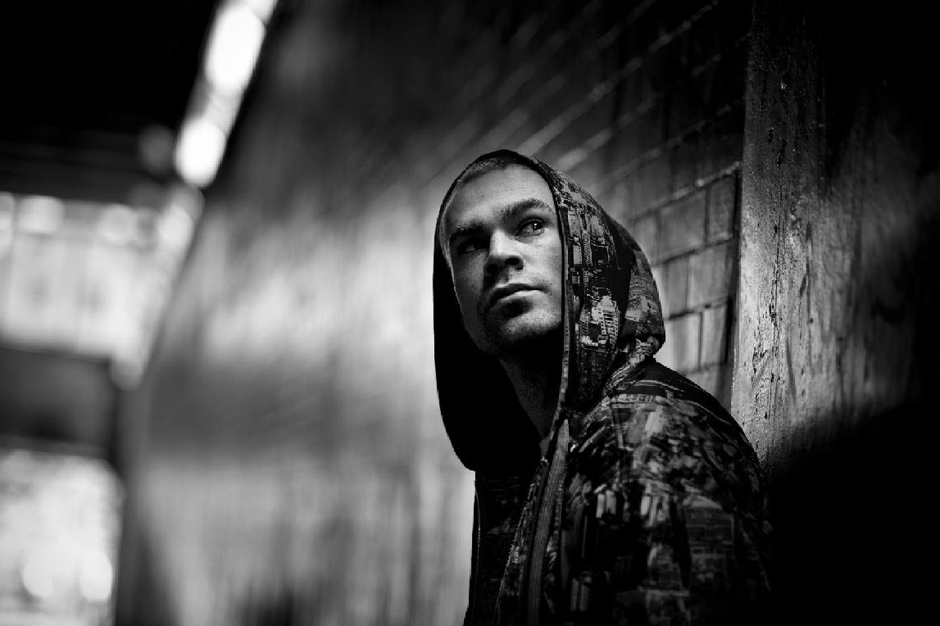Last week, in an annotated playlist for Red Bull Music Academy, Simon Reynolds traced the interplay between American R&B and U.K. garage (or 2-step), a short-lived hybrid of house and jungle that dominated the British underground and briefly exploded into the pop charts, back around the turn of the millennium.
As it happens, I’ve been dusting off a lot of my old 2-step records lately. With producers like FaltyDL, Mosca, XXXY, and Juk Juk all revisiting vintage bump-and-flex vibes, the original tracks sound as relevant as ever, slotting nicely between house and present-day bass music. And so, having emerged from the YouTube rabbit hole that Reynolds opened up, I’m submitting a brief list of my own U.K. garage favorites. Note that this list is in no way intended as definitive.
Some of these tracks are classics, some are more idiosyncratic picks that have always struck a chord with me.
I played most of these songs last weekend, after taking over the decks (at 6 a.m.) from Loefah, head of the Swamp 81 label and an affiliate of Digital Mystikz, the O.G. London dubsteppers. I was already nervous enough about following Loefah, all the moreso since he’d closed out his set playing an hour of classic grime and dubstep, with hits to spare (including Wiley’s “Ice Rink” and Dizzee Rascal’s “I Love U”); there was so much bass you could’ve suffocated in it. How is anybody supposed to follow that? (To make matters worse, the soundman wanted to change mixers between sets, and in those three minutes of silence, the majority of the room made its drunken exodus.)
As I was deliberating my first record, Loefah, packing up his bags, asked what I had in store. “Garage,” I replied, feeling suddenly like a tourist, especially given his own deep roots in British bass-music culture. What, after all, does an American know about 2-step? I never really lived it, in its prime — I just mail-ordered records from overseas and figured out how to mix the stuff as best I could.
“I was never much of a fan of garage,” sniffed Loefah. “What have you got?”
Fuck. “Well, some El-B…”
“Oh, okay” he nodded, looking more interested. “Have you got any Todd Edwards?”
I did not.
“Have you got any Horsepower Productions?” I did not, though I hastened to tell him that I’ve got plenty at home.
Loefah ambled off to the bar, and I got back to the business of figuring out how to recapture the rapidly emptying room, ultimately settling on Roy Davis Jr.’s “Gabriel (Large Joints Remix)” to kick things off. Considering the circumstances, it went pretty well; there were still people dancing at 8:30 A.M., when I finally faded out the volume on my last track (Mosca’s 2-steppy remix of T. Williams’ “Heartbeat,” for the record).
Afterwards, sitting in the sunshine on the club’s back patio, drinking an ill-advised final beer and waiting to get paid, a couple from the U.K. told me how happy they’d been to hear “Gabriel” played out. “You never hear that in London clubs,” the woman told me. “People might play a track or two,” her boyfriend added, “but no one plays a whole set like that.”
Maybe being a tourist has its advantages after all.
Roy Davis Jr., feat. Peven Everett “Gabriel (Large Joints Remix)” (Locked On)
This is hardly obscure, but who cares? It’s perfect — and also a nice illustration of the way that American house music morphed into 2-step. Even the name, “U.K. garage,” is an export — it comes from New York and New Jersey garage, a supple, soulful style that takes its name, in term, from the Paradise Garage; New Jersey’s Todd Edwards is something like the patron saint of UKG, having pioneered the swinging beats and choppy vocal samples that became hallmarks of the British sound. But this song actually comes from the Midwest; it was originally released in 1996 on the Chicago label Large (and, even though its subject is the archangel Gabriel, it was originally released as “Gabrielle.”) The following year, XL gave it a typically unhinged Basement Jaxx remix. But the mix we’re talking about comes from Zed Bias’ Sound of the Pirates mix and compilation, from 2000, on the London label Locked On; it’s the work of one Mike Millrain, whose CV exemplifies the era’s promiscuous approach to aliases — in addition to Large Joints, he recorded as Deadly Dubz, Fruity Loops, Ghetto Funk, Stone Cold Steppaz, Urban Fever, and about a dozen other fly-by-night names.
The blueprint for 2-step was already there in the original song, with its loping cadence, reggae-inspired bass, and faintly lagging rimshots, which divided each bar with the elegance of the golden mean. Millrain’s main contribution was to swap out the organic percussion of the original for whittled-down hi-hats and crudely truncated snares, hollow as a cardboard box, following the contours of the original groove, but giving it a weird, unnatural sense of movement — the uncanny valley played out on MPC. The rest he left intact: the horns, the dread bass, and most of all, Peven Everett’s absolutely heavenly voice. If this is evangelism, bring it on.
https://youtube.com/watch?v=gO5_VW1Lv3o%3Fversion%3D3
El-B, feat. Juiceman and Simba “Show a Little Love” (Scorpion Records)
The king of “nu dark swing,” El-B (Lewis Beadle) is responsible for some of the duskiest sounds ever to come out of UKG. Recording for labels like Ghost and ShelfLife, he attacked 2-step grooves with surgical precision, turning out a skeletal funk that sloughed off all excess — lurching, naked, rattling bone-dry percussion over gelatinous pools of bass. As Ghost, working alongside J Da Flex and Nude, he helped lay the foundations for dubstep with tracks like “The Spooks.” “Show a Little Love,” featuring Juiceman and Simba, revealed a more sensitive side, as El-B luxuriated in soulful vocal harmonies and bright chords that drip like synthetic raindrops. The drum groove is as economical as they come — just a pipsqueak kick-drum bouncing nervously beneath dry hi-hats and snares. Positively malnourished by contemporary standards, the track has a sense of swing that makes it move like St. Vitus’ dance.
https://youtube.com/watch?v=UdmUNY0pLw4%3Fversion%3D3
Oris Jay “Trippin” (Gusto)
I have conflicting tastes in U.K. garage: I love me some cheese, but maybe not triple-crème, if you get what I mean. This 2001 cut from Oris Jay (a.k.a. Darqwan) hits the sweet spot. Unlike the R&B refixes that Reynolds covers in his Red Bull piece, the vocals here are native to the song; the British singer, Delsena Ramsey, doesn’t have the voice of the American divas she’s imitating, but her quavering pitch actually lends an added urgency. (It’s a breakup song, after all.) Jay’s production provides the perfect counterweight, with a tightly coiled drum groove powering it all, a staggered mbira melody plucks away, sad but determined; in contrast to Ramsey’s melisma. It’s a paragon of control. The MK-style bass line and gentle splashes of Rhodes round out the balance of rough and smooth.
(Given the way garage has come back in the past couple of years, how awesome is it that, back in 2001, Jay released a version called “Trippin’ (2010 Dub)“? That’s some prescient shit right there.)
https://youtube.com/watch?v=J4srUhRILVc%3Fversion%3D3
Shut Up and Dance “Moving Up” (Shut Up and Dance Records)
Here’s another study in contrasts, pitting one of the sweetest melodies in dance music against snub-nosed bass womp and rough-cut breakbeats; befitting the group’s long history in U.K. hip-hop, acid house, and breakbeat hardcore, they alternate their singing style between dulcet R&B and tougher dancehall toasting. The omnipresent air horns are the icing on the lopsided cake.
https://youtube.com/watch?v=v0J5rUH_NMY%3Fversion%3D3
Zed Bias & Hyper-Hypa, feat. Bubba Groove “Buttercup” (Sidewinder Recordings)
Zed Bias had one of UKG’s most enduring classics with his 1999 tune “Neighbourhood” (including remixes, arguably better than the original, from El-B and Steve Gurley), and he’s still at it, knocking out bass-heavy house and U.K. funky; just last fall, he released the album Biasonic Hotsauce – Birth of the Nanocloud, featuring contributions from FaltyDL and Mark Pritchard along with a new rework of “Neighbourhood.” “Buttercup,” from 2000, is a great example of the parallels between 2-step and lover’s rock that Simon Reynolds pointed out in his 1999 article “Adult Hardcore,” in The Wire; I love the frisson that comes from hearing lines like “Don’t give up your buttercup” delivered in a voice as deeply masculine as Everton Barnes’, with multi-part harmonies that recall a doo-wop chorus down on one knee. From a cracked-pavement backdrop of shuffling snares, grunts, and sternum-thumping bass shoots up a yellow flower: It’s as irresistible as it is absurd.
https://youtube.com/watch?v=NPnyAC9W6fw%3Fversion%3D3





